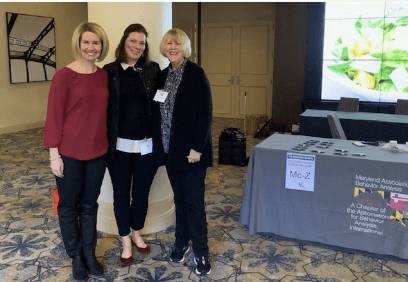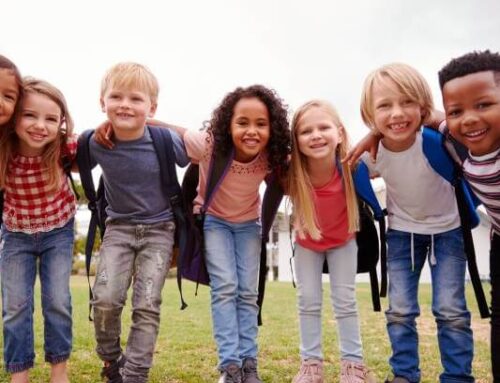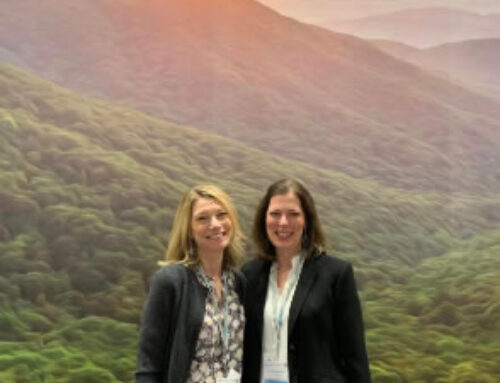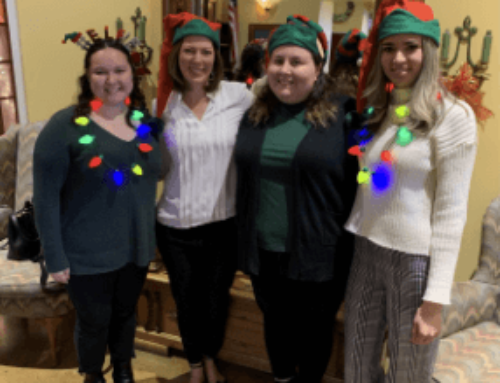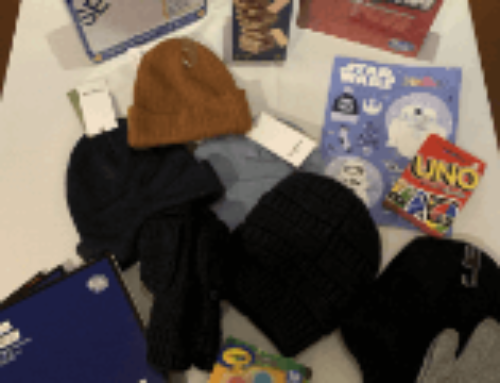Preparing for a Stress-Free Holiday Season
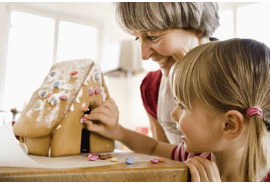
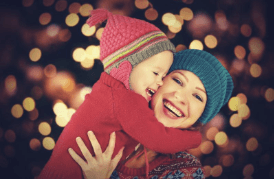
It’s the Season of Hugs: Navigating Social Boundaries
The holidays are upon us, which likely means spending time with friends and relatives we see infrequently the rest of the year. COVID aside, it can be uncomfortable and even confusing to be hugged by a less familiar adult, in particular for children with cognitive and developmental disabilities. Other social and sensory stressors also need to be considered for those we serve. In this issue we offer ideas to help our kids navigate elements of the holiday season to make it as stress-free as possible.
- We recommend that parents contact friends and relatives ahead of time to let them know that their child prefers not to give or receive hugs and kisses. The adage “an ounce of prevention” applies here. Remember you are also teaching safety skills by creating rules and boundaries for your child, when s/he does not easily discriminate between known and unknown adults. This can be a guiding rule for your child when interacting with less familiar adults in any situation.
- In the moment, step right in and cue your child to give a high five or blow a kiss instead of a hug, if one has been initiated by an unfamiliar adult or when thanking someone for a gift.
- When arriving and leaving an event, have your child wave when greeting or saying goodbye to others versus engaging in a hug or a kiss. This can be an expected “go to” behavior taught to your child.
- As the gathering or party continues, prepare your child for what will happen next (ex: “Aunt Judy is leaving. Let’s wave goodbye to her.”).
- We also recommend preparing your child for what is likely to happen this season in a more broad way. Walk them through the steps of attending holiday parties or other events like concerts or cookie exchanges that can occur this season, and practice in advance, as needed.
By preparing your child for new situations and creating and reinforcing behavior rules, you can help your child feel more comfortable this holiday season and build their safety skills for interacting with less familiar adults.
We compiled a few resources to help make the holidays
merry and bright for your family.
Tips for enjoying the holidays with a loved one with special needs:
1. Prepare ahead of time: Examples include using a calendar and marking the dates of various holiday events, or by creating a social story that highlights what will happen at a given event.
2. Decorations may be disruptive: Involve your loved one in the decorating process and set specific and consistent ground rules on which decorations can and can’t be touched.
3. If a person with autism has difficulty with change, you may want to gradually decorate the house and engage them in the process. It may be helpful to develop a visual schedule or calendar for this purpose.
4. Be flexible: Bring two adults to events, if possible, to allow your other children to stay at the event if something doesn’t work out for your child with special needs. That can allow for a more graceful exit.
5. Be on guard for wandering: Whenever routines are altered, there’s the potential for kids to get separated or lost. Survey new environments for potential dangers (e.g., bodies of water/pools, active roadways, wooded areas) when visiting others or attending a holiday event. Remain vigilant of your child’s whereabouts throughout the event and have an advanced plan before leaving home in the event wandering occurs.
Autism Speaks has advice on travel, photos, and gifts
When Traveling…
Provide the airline with advanced information.
To help prepare the individual, see tips for smooth travel.
For Holiday Photos…
Set up in advance: Encourage the photo session to be set up ahead of time with the individual placed into the frame at the last second.
Use candids: For informal but striking candid photographs, let the photo session be about the child.
Behavioral Directions, LLC in Sterling, Virginia is a firm of leading behavior analysts and psychological professionals with extensive experience serving individuals with Autism Spectrum Disorders, Attention Deficit Hyperactivity Disorder (ADHD), Problem Behaviors and related Developmental Disabilities.
We are located at 46090 Lake Center Plaza, Suite 101, Sterling, VA 20165. Click here to contact us.

